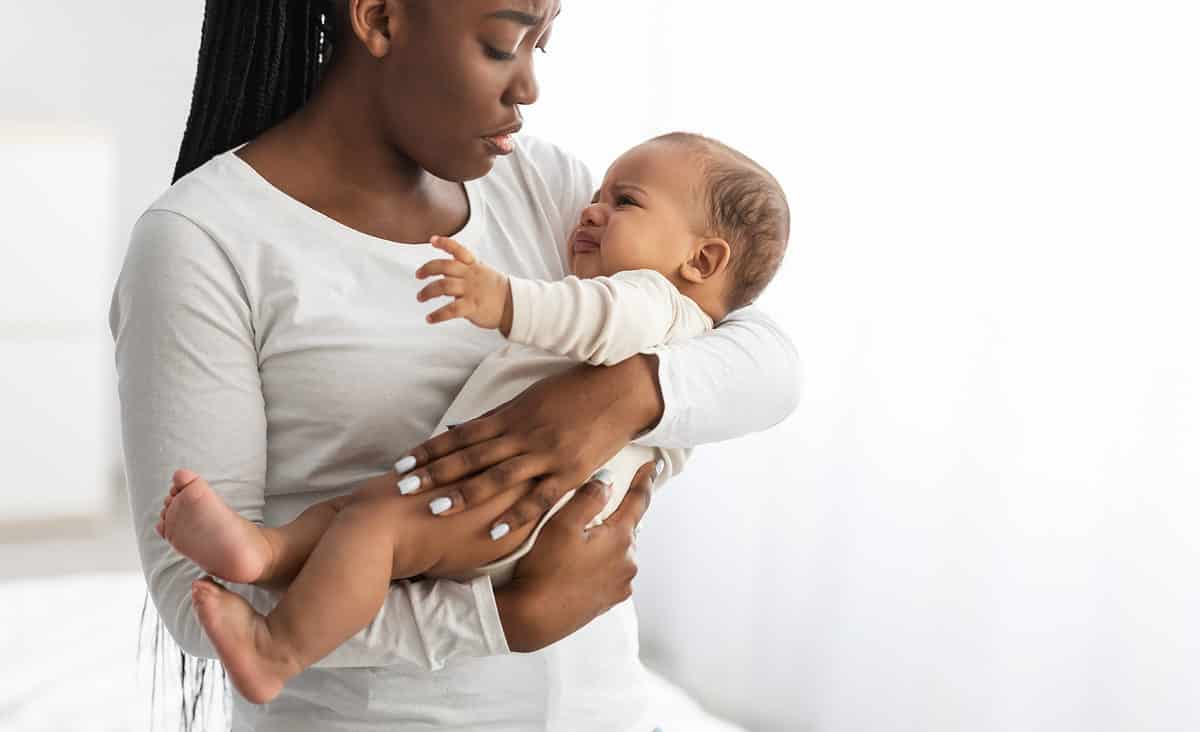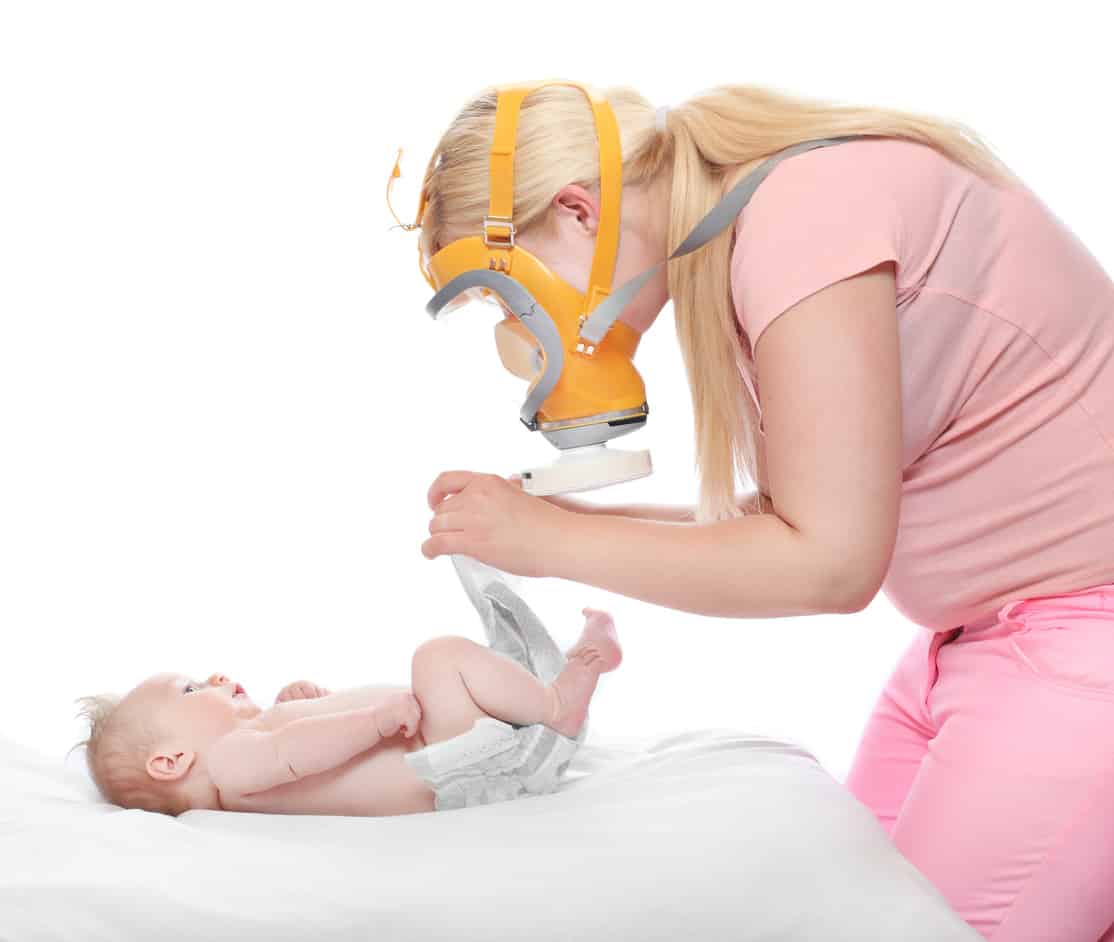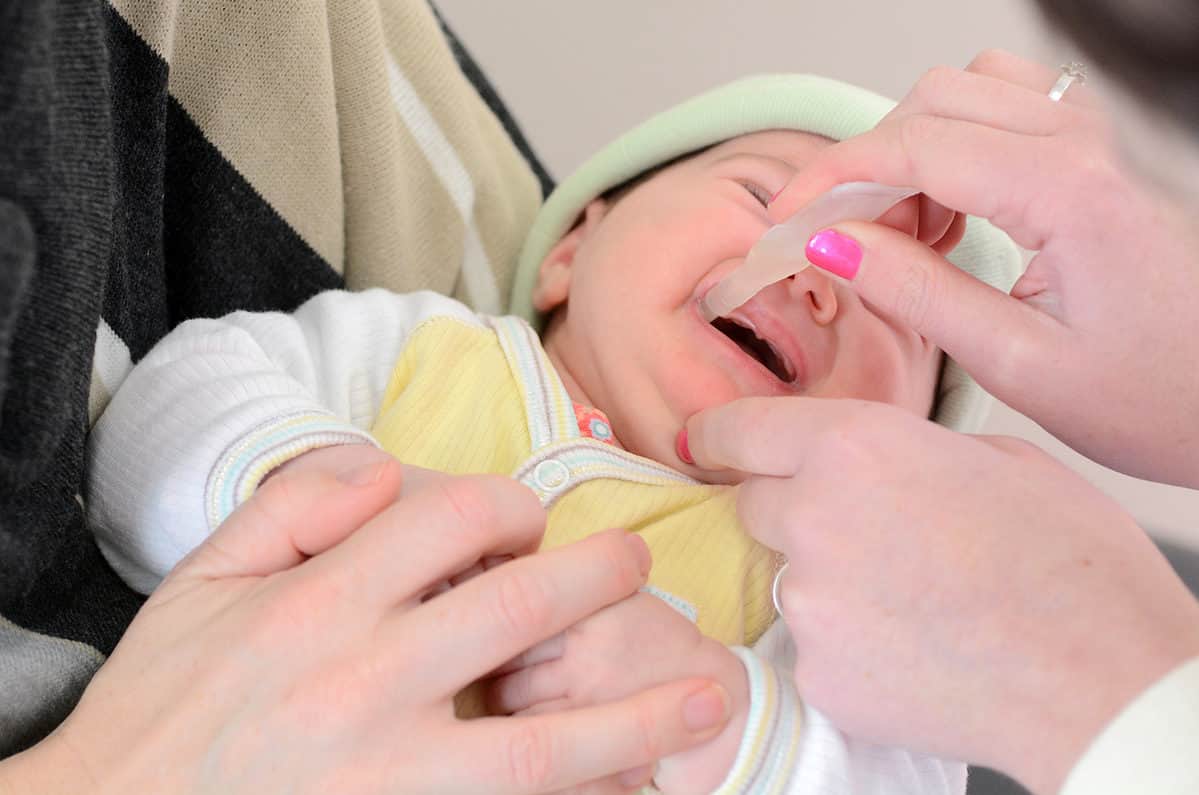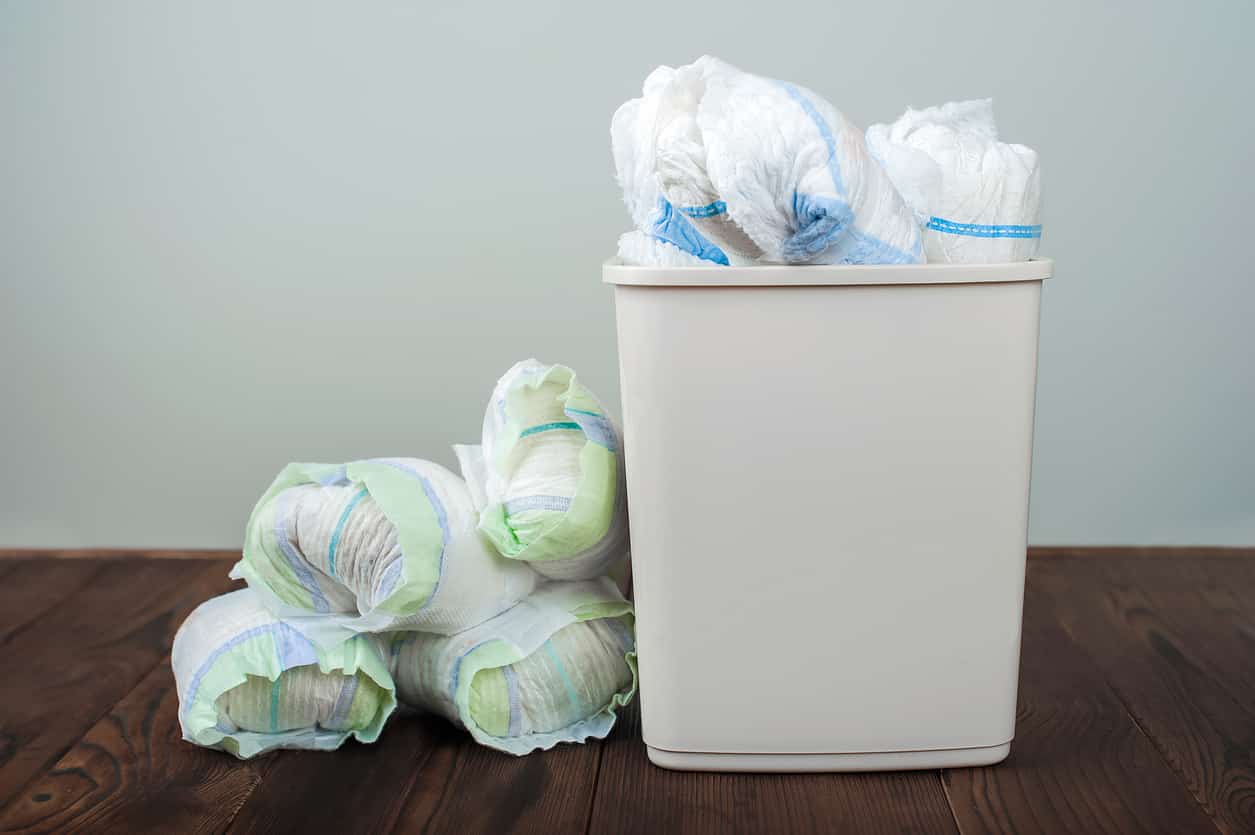As parents, we all want nothing but the best for our babies, and any health concern can be very alarming. No parent ever wants to be shocked at the changing table. However, the reality is that minor changes in a baby’s stool are normal and not something to be overly concerned about.
Indeed, diarrhea in babies can be a stressful symptom, so when should you be worried? You should worry about diarrhea when it is accompanied by a fever. When it comes to baby diarrhea, understanding when to worry and when it's simply part of normal development helps reduce any unnecessary concern or anxiety.
Key Points of Baby Diarrhea
- Baby diarrhea is a fairly common affliction. Their G.I. tracks are developing so even small things can move too quickly in their systems.
- They should only be having diarrhea for about two days. If it goes on any longer or you notice something serious in their stool, call your health care provider immediately.
- Be slow and methodical when introducing new foods. It gives your baby time for their stomachs to adjust.

©iStock.com/Prostock-Studio
When Should I Worry About Baby Diarrhea?
Baby diarrhea is a fairly common condition. Various factors, including infections, allergies, and diet, cause this and should not be a reason for parents and caregivers to worry. While it is usually not severe if left without treatment, baby diarrhea can lead to dehydration and other serious health problems. Therefore, it’s essential to pay close attention to the signs and symptoms of baby diarrhea for you to seek the appropriate care.
As a parent, recognize that if your baby has frequent, watery bowel movements or stools containing blood or mucus, this could signify something more serious such as an infection. Fever is another symptom that you should never downplay. In these cases, seek medical attention as soon as possible to help avoid more severe complications.
How Long Should Baby Diarrhea Go On?
In general, baby diarrhea should not last more than two days. If diarrhea persists beyond that or there are other common symptoms such as fever, dehydration, vomiting, or abdominal pain, seek medical attention immediately. These could be signs of a severe underlying condition.
It is important to note that diarrhea is common in infants, and anything from viral infections to food allergies can cause this. You need to know what to expect when something more serious happens and how long your baby's diarrhea should last.
Difference Between Runny Stool and Diarrhea
To better understand baby diarrhea, recognize the differences between regular runny stools and actual diarrhea. Typical, watery baby stools are usually yellowish-brown in color and have a soft, pudding-like consistency. This is the usual infant stool pattern often seen with breastfed infants. On the other hand, diarrhea is loose or liquid stools that occur more frequently than average. It is usually yellowish-green in color and has a foul smell.
You should also be aware of the things that can trigger baby diarrhea. These include new food or something in the baby's environment. If you introduce fresh food, wait at least four days before offering other foods. This allows time for any possible reactions to resolve and will help prevent further bouts of diarrhea. Watch out for any allergies that may arise. Contact your baby's healthcare provider if the symptoms do not improve or worsen.
What Soothes Baby Diarrhea?
Diarrhea in babies is a common occurrence and a source of worry for most parents. However, understanding the causes and treatments can help soothe your baby’s digestive system, get them feeling better quickly, and help ease your anxiety.
Here are some tips on what soothes baby diarrhea:
- Diet: Ensure your baby is getting enough fluids, as dehydration is a common side effect of diarrhea. Offer clear, electrolyte fluids such as Pedialyte or Gatorade to help them stay hydrated. You can also give your baby an oral rehydration solution (ORS), which contains minerals, salts, and other nutrients to replenish their body’s lost electrolytes.
- Foods: Avoid giving your baby solid foods, including whole milk or dairy products, until the diarrhea has passed. Offer them a liquid diet of strained cereal mixes and clear soups if they are old enough to eat solids. You should also avoid acidic foods such as oranges, lemons, and tomatoes, which can irritate the digestive system.
- Medication: Talk to your doctor before giving your baby any medication, as they may have other treatments or advice. Over-the-counter medications such as Kaopectate and Imodium can effectively reduce diarrheal symptoms. However, you should only administer these medications under the supervision of your baby's doctor.
- Probiotics: These are beneficial bacteria that help to restore the balance of good and harmful microorganisms in the digestive system. They may also reduce inflammation, a common cause of diarrheal symptoms. You can find probiotic supplements at your local health food store or pharmacy under the prescription of your baby's pediatrician.
- Natural Remedies: Natural remedies such as chamomile tea and ginger may help to soothe your baby’s digestive system. You can also give them a dose of activated charcoal to absorb toxins in the GI tract. Talk to your baby's doctor before using any natural remedies, as some may interact with medications or cause other adverse reactions.

©iStock.com/abadonian
How To Tell If My Baby is Dehydrated
Dehydration can be a severe issue for babies if it goes on for some time without treatment. It is important for you to know how to tell when your baby needs hydration. Knowing when you should be worried about your baby's diarrhea and what steps you should take to rehydrate them is also critical. These are some of the most useful tips on how you can tell if your baby needs rehydration:
- Lack of tears when crying: Dehydrated Babies may have dry eyes instead of forming tears when they cry.
- Dry skin: Touch your baby’s skin and check for moisture. If it feels dry or is cracking and peeling, this can signify dehydration.
- Sunken eyes: Examine your baby’s face and check if the eyes appear sunken. This can signify dehydration, especially if other symptoms accompany it.
- Fewer wet diapers: Babies typically produce six or more wet diapers per day, depending on their age and size. If you notice your baby is producing fewer wet diapers (or none at all), it could be a sign of dehydration.
- Lethargy: Dehydration can cause babies to become extremely inactive and disinterested in things that usually bring them joy, such as playing or eating.
- Sunken soft spot on the head: Check your baby’s fontanel (the soft spot at the top of your baby's head). If it is sunken in or appears to be “tented,” this could be a sign of dehydration.
Some dehydration is easily solved with proper fluids. Some not so much. Dehydration in babies can be a cause for concern if you can not rehydrate them at home. If you feel that they can't seem to get enough fluids contact your pediatrician.
Different Types of Diarrhea in Babies
As noted above, diarrhea in babies occurs due to various reasons. It is important for you to understand the different types of diarrhea that can affect your baby. This enables you to stay calm, take the necessary precautions and provide adequate treatment to prevent further health complications.
The different types of diarrhea in babies include:
- Acute Diarrhea: This comes about suddenly and lasts for a short period. It is usually caused by an infection such as viral gastroenteritis, salmonella, or rotavirus. Symptoms include watery stools, abdominal cramps, fever, and vomiting.
- Chronic Diarrhea: Long-term watery stools characterize this type of diarrhea. Underlying medical conditions such as food allergies or intolerance, celiac disease, inflammatory bowel disease, or irritable bowel syndrome may be the causative culprits here. Symptoms include persistent watery stools, abdominal cramps, fatigue, and weight loss.
- Allergic Diarrhea: If your baby has an allergic reaction to certain meals or substances, the result is allergic diarrhea. Symptoms include watery stools, abdominal cramps, vomiting, and hives.
- Osmotic Diarrhea: This occurs when there is an imbalance between the amount of fluids and the number of electrolytes (bicarbonate, potassium, chloride, and sodium) in the body. The inability to absorb certain nutrients or medications is what usually causes this imbalance. Symptoms include watery stools, abdominal cramps, bloating, and nausea.
- Secretory Diarrhea: An overproduction of fluids and electrolytes in the intestine is what causes this type of diarrhea. Bacteria such as E. coli or Salmonella are responsible for this anomaly. Symptoms include watery stools, abdominal cramps, fever, and dehydration.
Seek medical attention if your baby has any of these types of diarrhea, as severe cases can be life-threatening. Treatment may involve antibiotics or other medications, depending on the cause of the problem.
Remember to change your baby's diapers often, as soon as your baby soils them. Try to keep his bum protected from rashes. You can do this by applying a cream with zinc oxide. They will probably be more fussy than normal during changing and be aware of the potential for a ‘splash zone' with extra cloth and cleaning wipes. Be sure to shower your baby with lots of love, care, and attention at this time, as this is a treatment on its own!

©iStock.com/chameleonseye
Conclusion
You should always be vigilant in matters involving baby diarrhea. If your baby has more than 6-8 watery stools within 24 hours, is vomiting, or has other symptoms such as fever, abdominal pain, lethargy, or blood or mucus in the stools, seek medical advice and attention.
Note that breastfed babies may have loose stools without cause for concern. This is partially due to the high water and fat content of breast milk. It simply moves faster through their system faster than formula or early baby food.
However, if symptoms persist beyond a couple of days, it's best to have your baby checked. Dehydration is a risk with baby diarrhea and can cause further health complications, so treating the condition quickly and accurately is advisable.
The image featured at the top of this post is ©iStock.com/Nelly Senko.
